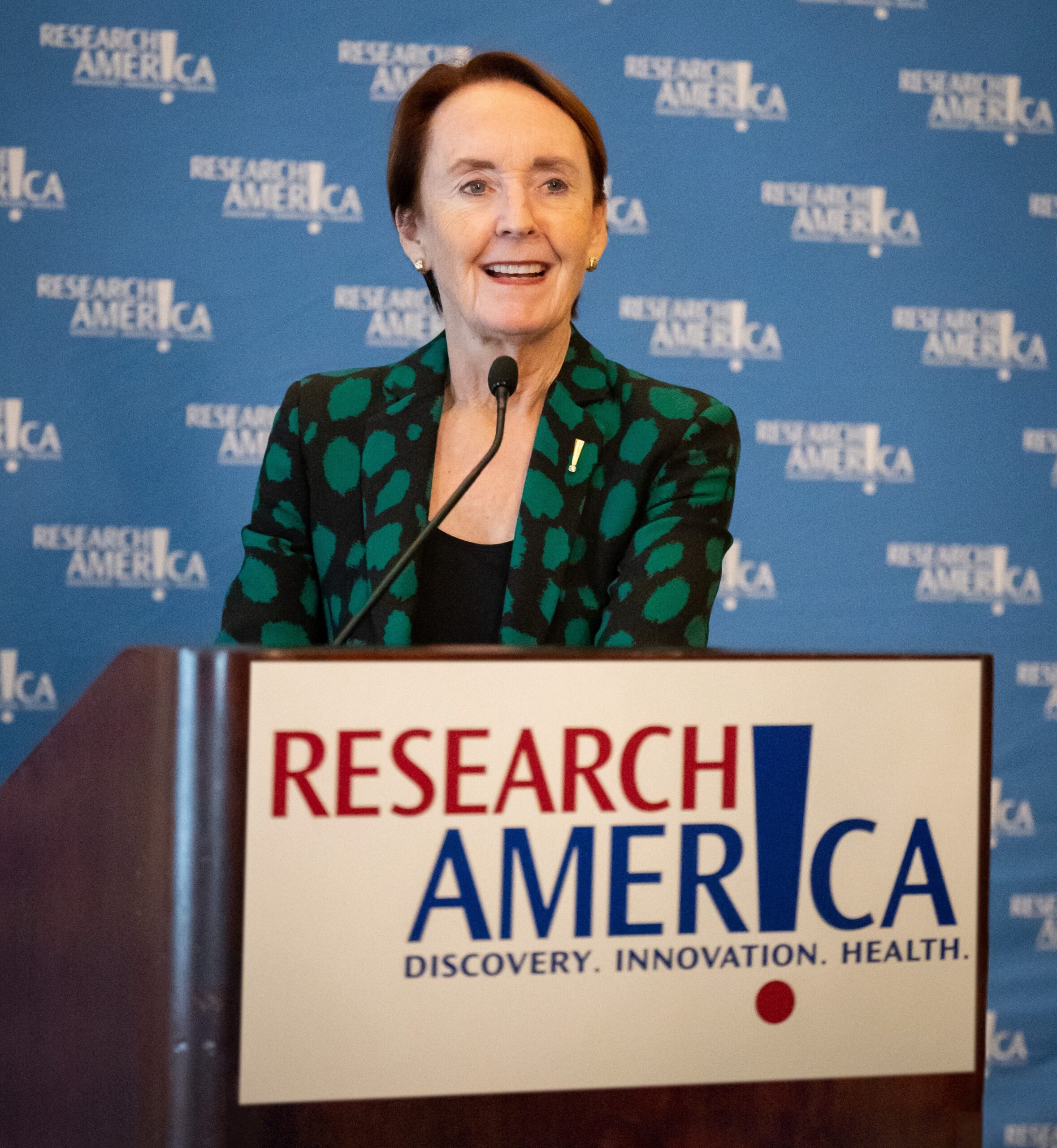Setting Priorities

How you spend your money says a lot about your priorities. China demonstrated its priorities this week as it announced it will boost investment in science and technology (S&T) by 10% this year. As our competitors are strategically investing more in science, the U.S. is going in the opposite direction with the decision this week to cut the NSF budget by 8%. (See more below.)
Whether the priority is economic competitiveness, national security, or self-sufficiency, S&T leadership serves the interests of the American people well, and we cannot afford to lose ground. The American public is concerned about our standing: in fact, our January survey found that 78% of Americans are concerned with the possibility of China surpassing the U.S. as the world’s leading S&T power.
On the Hill: Congress is expected to meet the March 8 deadline for passing the first six FY24 spending bills, which include the NSF cut noted above. This spending package also includes what is essentially flat funding for the FDA.
By March 22, Congress must pass the second six FY24 appropriations bills, including those that fund the NIH, CDC, and BARDA. We know that research champions from both sides of the aisle in Congress have faced great challenges as they press for greater investment in S&T. We must redouble our efforts and call upon all members of Congress to make science, medical, and health research a top priority. Use this editable email to make your voice heard at this critical time.
Presidential Priorities: President Biden will outline his priorities in the State of the Union (SOTU) address tonight and with the release of his FY25 budget on Monday, March 11. (Yes, the FY25 budget process begins even as the FY24 process remains unfinished, at least until March 22.) Funding caps for defense and non-defense spending for FY25 set with last year’s debt limit deal allow for just a 1% increase in each. That said, Congress will have the flexibility within each category to prioritize spending by increasing some agencies and programs by more than 1% as long as net spending does not exceed the 1% cap.
Our January survey also indicates that a strong bipartisan majority (84%) of Americans feel it’s important to set a higher GDP spending goal for research and development. Let’s all voice that sentiment to make the case that research funding should rank very high among spending priorities.
Data Drives Advocacy: Yesterday, I joined our alliance discussion to share selected data from our 2024 national omnibus survey, which revealed current public sentiment on federally funded research, global competitiveness, confidence in science, and other hot-button topics. In the Q&A, I was asked if I was surprised by any of the findings. I said I was stunned by one in particular: half of respondents (52%) believe children in America will be worse off than people are now when they grow up. This is the time to challenge candidates for office to talk about what they will do to overcome that discouraging finding. Here’s a hint: of those respondents who said American children would be better off, the number one reason given was progress in S&T. So let’s invest in achieving that progress!
New Survey Database: Research!America has commissioned public opinion surveys since 1992 to provide greater insight into public views on medical, health, and scientific research. This week, we launched an interactive database of our survey data, available on the Research!America website. Housing the last 10 years of national survey data (with prior years being added soon), this unique resource allows users to easily sort and visualize our robust catalog of survey questions and compare data over time. It is a useful tool when making the case for research, and some of the findings may even shock you – for example, only 32% know that research for health is conducted in all 50 states – and while that percentage changes a bit from year to year, it reflects the stubborn reality that an enterprise that works nationwide to serve the public’s interest is relatively invisible. Take a look!
Saving Veterans’ Lives Through Research: In an alliance discussion later this month (March 21 at noon ET), we’ll hear from Rashi Romanoff, Chief Executive Officer, and Liz Stout, Communications and Public Policy Administrator, of the National Association of Veterans’ Research and Education Foundation, who will discuss how the organization and its members are collaborating to enhance access to innovative care and save veterans’ lives through research. Register to join us on Zoom.
Coming Right Up: Please join us next Wednesday, March 13, at the National Academy of Sciences for our 2024 Advocacy Awards program. If you have not yet registered, please do so now. Thanks to the generosity of our sponsors this event is free, but space is limited. We will be honoring individuals who are driving innovation, advocating for progress, and making waves in the world of medical, health, and scientific research and innovation. It promises to be an inspiring night. I look forward to seeing you there!Happy Anniversary CTHS! Keeping the celebrations going, this week marks the one-year anniversary of the Coalition for Trust in Health & Science (CTHS). The Coalition’s straightforward yet ambitious goal of creating a global environment where everyone is equipped to make well-informed, evidence-based decisions about their health moves into its second year with a renewed vigor for combatting mis- and disinformation. Take a moment to learn more about CTHS’ achievements in its inaugural year.




